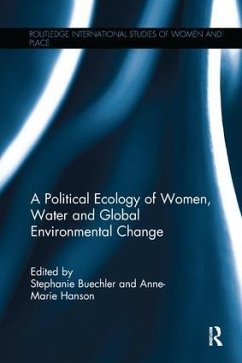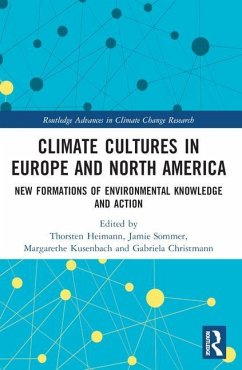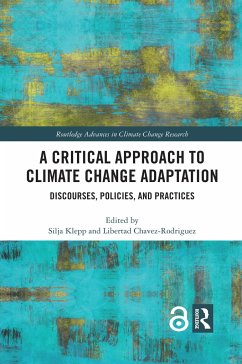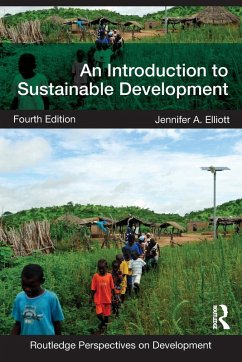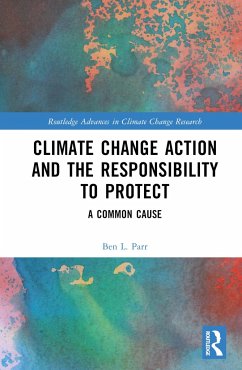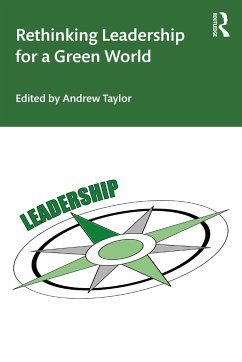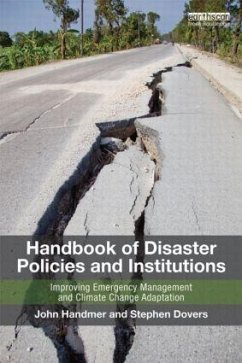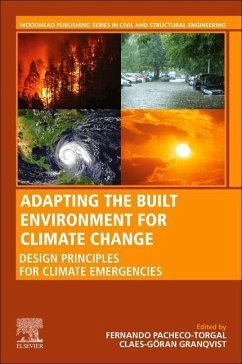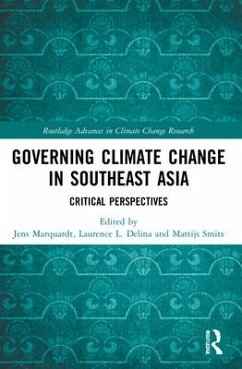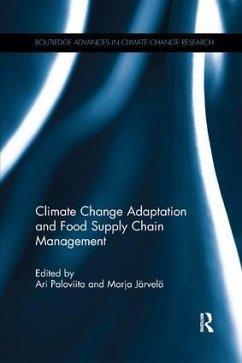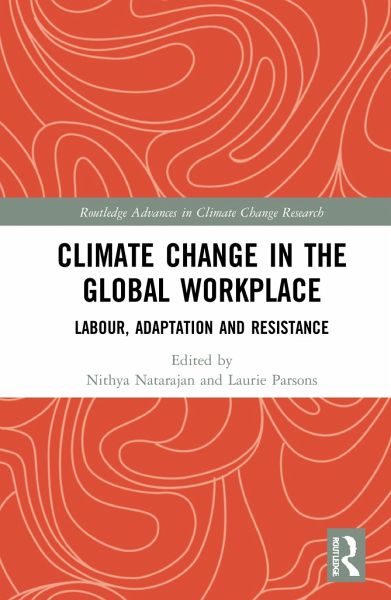
Climate Change in the Global Workplace
Labour, Adaptation and Resistance
Herausgegeben: Natarajan, Nithya; Parsons, Laurie

PAYBACK Punkte
22 °P sammeln!
This book offers a timely exploration of how climate change manifests in the global workplace. It draws together accounts of workers, their work, and the politics of resistance in order to enable us to better understand how the impacts of climate change are structured by the economic and social processes of labour.Focusing on nine empirically grounded cases of labour under climate change, this volume links the tools and methods of critical labour studies to key debates over climate change adaptation and mitigation in order to highlight the active nature of struggles in the climate-impacted wor...
This book offers a timely exploration of how climate change manifests in the global workplace. It draws together accounts of workers, their work, and the politics of resistance in order to enable us to better understand how the impacts of climate change are structured by the economic and social processes of labour.
Focusing on nine empirically grounded cases of labour under climate change, this volume links the tools and methods of critical labour studies to key debates over climate change adaptation and mitigation in order to highlight the active nature of struggles in the climate-impacted workplace. Spanning cases including commercial agriculture in Turkey, labour unions in the UK, and brick kilns in Cambodia, this collection offers a novel lens on the changing climate, showing how both the impacts of climate change and adaptations to it emerge through the prism of working lives.
Drawing together scholars from anthropology, political economy, geography, and development studies, this book will be of great interest to students and scholars of climate change adaptation, labour studies, and environmental justice. More generally, it will be of interest to anybody seeking to understand how the changing climate is changing the terms, conditions, and politics of the global workplace.
Focusing on nine empirically grounded cases of labour under climate change, this volume links the tools and methods of critical labour studies to key debates over climate change adaptation and mitigation in order to highlight the active nature of struggles in the climate-impacted workplace. Spanning cases including commercial agriculture in Turkey, labour unions in the UK, and brick kilns in Cambodia, this collection offers a novel lens on the changing climate, showing how both the impacts of climate change and adaptations to it emerge through the prism of working lives.
Drawing together scholars from anthropology, political economy, geography, and development studies, this book will be of great interest to students and scholars of climate change adaptation, labour studies, and environmental justice. More generally, it will be of interest to anybody seeking to understand how the changing climate is changing the terms, conditions, and politics of the global workplace.





